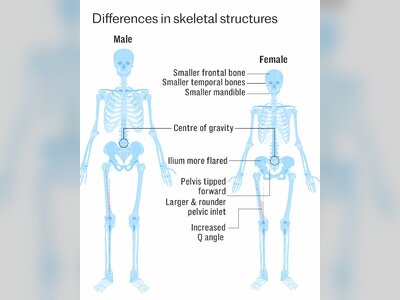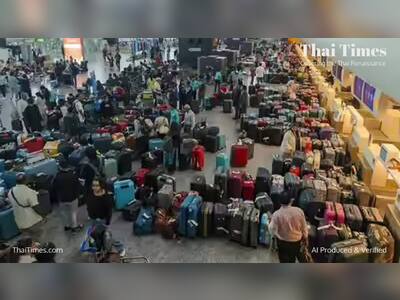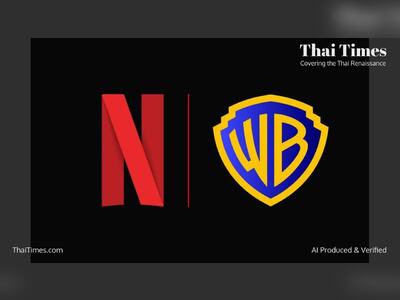Bank of Thailand Implements Regulatory Framework for Hire Purchase and Leasing Industry
New regulations target high-interest rates and enhance consumer protection across 3,000 businesses in Thailand.
The Bank of Thailand (BOT) has announced a new regulatory framework aimed at the hire purchase and leasing industry, addressing long-standing concerns over high-interest rates and inadequate consumer protections.
Complaints from the public regarding misleading information, excessive fees, and ineffective debt restructuring practices have prompted the BOT to take necessary regulatory action in order to promote fairness, transparency, and equity within the market.
The BOT will extend oversight to approximately 3,000 businesses in the hire purchase and leasing sector, categorized by their loan portfolios.
This includes about 60 large enterprises with portfolios exceeding 1 billion baht, around 150 medium-sized businesses with portfolios between 100 million and 1 billion baht, and numerous smaller companies with loans under 100 million baht.
All these businesses will be required to register with the BOT to ensure adherence to new standards and regulations.
The enhancements in regulatory oversight also dictate that large businesses, given the potential risks they pose to consumers, will be subjected to closer monitoring under stricter regulations.
Smaller businesses might rely on technological tools for oversight, with the potential implementation of random checks using methods such as social media monitoring and assessment based on consumer complaints.
Nevertheless, the BOT acknowledges that the transition to a more regulated environment may lead some businesses to exit the market, particularly if they deem compliance too burdensome.
Such withdrawals could decrease loan issuance in the short term.
However, the BOT argues that better regulation will ultimately foster a more sustainable lending environment, allowing consumers to manage their debts effectively through improved transparency in fees and interest rates.
Interest rates for hire purchase loans are currently set by the Office of the Consumer Protection Board (OCPB) with a ceiling rate reviewed every three years.
The next review is scheduled for October 2025, and the BOT has indicated that a clearer definition of interest rates will be forthcoming soon after December 2, 2025.
The BOT has published a roadmap for implementing these new regulations, with the official announcement made in the Royal Gazette on June 5, 2025.
The regulations will come into effect after December 2, 2025.
The period from June to December will involve preparatory work that includes focus groups to gather feedback across various business sizes.
The BOT expects to have regulatory guidelines ready to enact immediately following the effective date.
Srisawad Corporation Public Company Limited (SAWAD) has expressed its intention to cooperate with the BOT, emphasizing the necessity of ensuring fair financial services for consumers.
The Strategy Director for Srisawad stated that they have been preparing for this regulation for two years and believe it will elevate industry standards.
Muang Thai Capital Public Company Limited (MTC) also welcomed the regulation, reaffirming that standardization across all operators will benefit consumers and the wider economy.
The regulation promotes social responsibility and legal compliance, which can enhance the standing of both individual companies and the entire industry.
In contrast, industry insiders have cautioned that small businesses might face challenges adapting to the new regulations.
While many larger operators support the BOT's regulations to eliminate unfair competition and standardize practices, adaptability will be crucial for smaller firms to remain competitive under the tightened regulatory environment.
Complaints from the public regarding misleading information, excessive fees, and ineffective debt restructuring practices have prompted the BOT to take necessary regulatory action in order to promote fairness, transparency, and equity within the market.
The BOT will extend oversight to approximately 3,000 businesses in the hire purchase and leasing sector, categorized by their loan portfolios.
This includes about 60 large enterprises with portfolios exceeding 1 billion baht, around 150 medium-sized businesses with portfolios between 100 million and 1 billion baht, and numerous smaller companies with loans under 100 million baht.
All these businesses will be required to register with the BOT to ensure adherence to new standards and regulations.
The enhancements in regulatory oversight also dictate that large businesses, given the potential risks they pose to consumers, will be subjected to closer monitoring under stricter regulations.
Smaller businesses might rely on technological tools for oversight, with the potential implementation of random checks using methods such as social media monitoring and assessment based on consumer complaints.
Nevertheless, the BOT acknowledges that the transition to a more regulated environment may lead some businesses to exit the market, particularly if they deem compliance too burdensome.
Such withdrawals could decrease loan issuance in the short term.
However, the BOT argues that better regulation will ultimately foster a more sustainable lending environment, allowing consumers to manage their debts effectively through improved transparency in fees and interest rates.
Interest rates for hire purchase loans are currently set by the Office of the Consumer Protection Board (OCPB) with a ceiling rate reviewed every three years.
The next review is scheduled for October 2025, and the BOT has indicated that a clearer definition of interest rates will be forthcoming soon after December 2, 2025.
The BOT has published a roadmap for implementing these new regulations, with the official announcement made in the Royal Gazette on June 5, 2025.
The regulations will come into effect after December 2, 2025.
The period from June to December will involve preparatory work that includes focus groups to gather feedback across various business sizes.
The BOT expects to have regulatory guidelines ready to enact immediately following the effective date.
Srisawad Corporation Public Company Limited (SAWAD) has expressed its intention to cooperate with the BOT, emphasizing the necessity of ensuring fair financial services for consumers.
The Strategy Director for Srisawad stated that they have been preparing for this regulation for two years and believe it will elevate industry standards.
Muang Thai Capital Public Company Limited (MTC) also welcomed the regulation, reaffirming that standardization across all operators will benefit consumers and the wider economy.
The regulation promotes social responsibility and legal compliance, which can enhance the standing of both individual companies and the entire industry.
In contrast, industry insiders have cautioned that small businesses might face challenges adapting to the new regulations.
While many larger operators support the BOT's regulations to eliminate unfair competition and standardize practices, adaptability will be crucial for smaller firms to remain competitive under the tightened regulatory environment.











